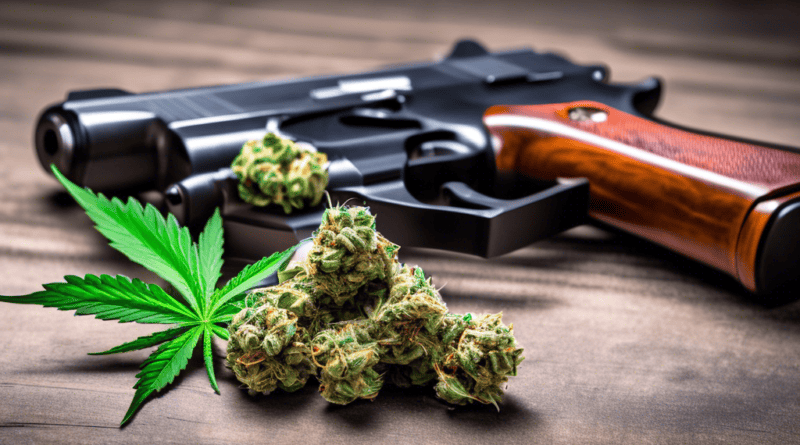Federal Court Rules Federal Ban on Gun Ownership for Cannabis Users Unconstitutional
Federal Court Strikes Down Ban on Gun Ownership for Cannabis Consumers
In a landmark decision, the U.S. Court of Appeals for the Fifth Circuit has ruled that the federal ban on gun ownership by cannabis consumers is unconstitutional. This ruling emerged from the case of Texas resident Paola Connelly, who faced charges after police found firearms in her home, despite her being a cannabis user. The court determined that disarming Connelly based on her past marijuana use infringes upon her Second Amendment rights.
The case aligns with the Supreme Court’s recent stance in New York State Rifle & Pistol Association v. Bruen. This decision reiterated the principle that modern firearm laws must correspond with historical traditions of firearm regulation. The court found no historical basis for disqualifying sober individuals from owning firearms simply because they had used cannabis in the past.
Judge Engelhardt’s Observations
U.S. Circuit Judge Kurt Engelhardt emphasized that repeat marijuana users, akin to habitual alcohol users, retain their mental faculties once sober. He highlighted that the historical context did not provide a foundation for disarming such individuals. This observation played a crucial role in the ruling that disqualifying cannabis users from gun ownership contravenes the Second Amendment.
Notably, the court did uphold a separate charge against Connelly related to transferring firearms to someone using illegal drugs. This verdict underscores that while cannabis use alone does not justify the denial of gun ownership rights, involvement in other illegal activities can still lead to legal repercussions. This nuance is key in distinguishing between lawful gun ownership and illegal activities associated with firearm distribution.
Impact on Federal vs. State Law Conflict
This ruling has brought to the forefront the ongoing conflict between federal and state laws concerning cannabis use. While federal laws classify cannabis as an illegal substance, many states have legalized its use, resulting in a complex legal grey area. The Justice Department has contended that cannabis consumers pose a danger to themselves or others, an argument that the court did not find persuasive in light of historical firearm regulations.
The implications of this ruling could be far-reaching, potentially influencing federal approaches to gun ownership eligibility, especially for the millions who legally use cannabis under state laws. As more states move towards cannabis legalization, this decision may pave the way for future legal challenges to federal firearm restrictions. It signals a shift towards recognizing the rights of cannabis consumers under the Second Amendment, heralding significant changes in the legal landscape.

